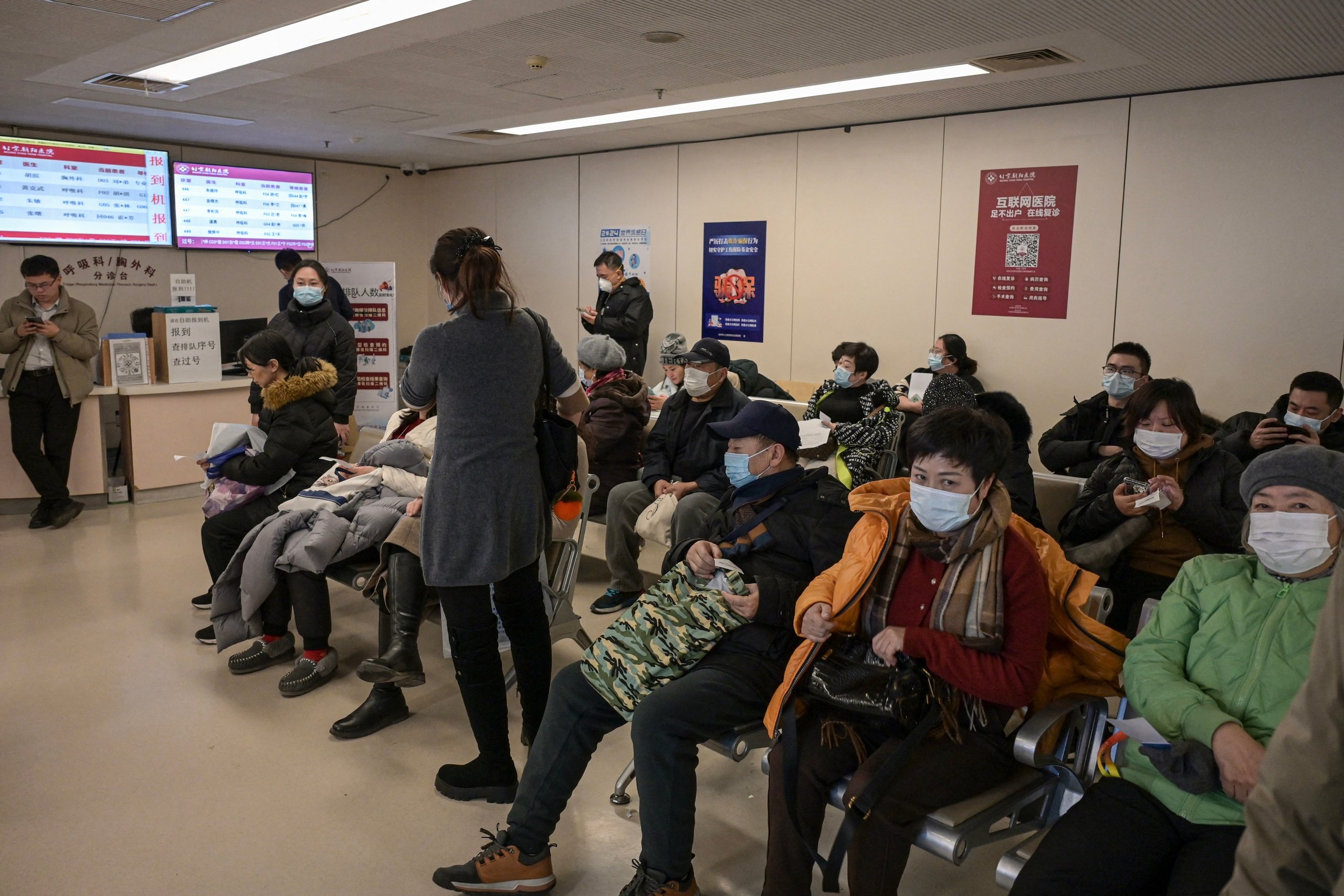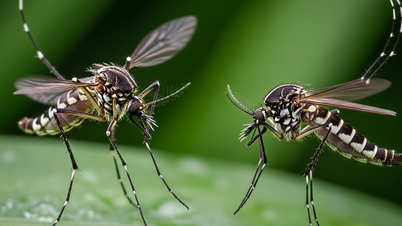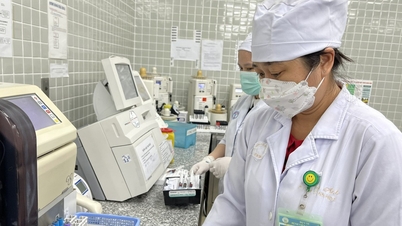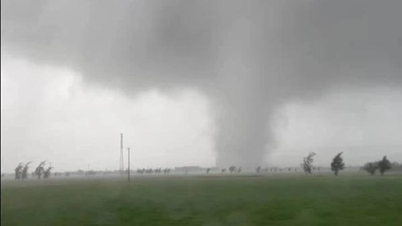The World Health Organization (WHO) commented on the cases of respiratory disease in China after receiving information from the country.

People wearing face masks wait at the outpatient area of the respiratory department at a hospital in Beijing on January 8.
The World Health Organization (WHO) has said that rising cases of common respiratory diseases in China and elsewhere around the Northern Hemisphere are within the range expected for winter and there have been no reports of unusual outbreaks.
Reports of a surge in cases of human papillomavirus (HMPV), a common respiratory infection, in China have drawn attention, with reports of hospital overcrowding reminiscent of the start of the Covid-19 pandemic more than five years ago, according to Reuters.
However, the WHO said in a statement on January 8 that it had been in contact with Chinese health authorities and had not received any reports of unusual outbreak patterns there. Chinese authorities had also informed the UN health agency that its health system was not overwhelmed and no emergency response had been activated.
WHO said data from China up to 29 December 2024 showed that detections of HMPV, seasonal influenza, rhinovirus and respiratory syncytial virus (RSV) had all increased in recent weeks, particularly in northern parts of China. Influenza was now the most common cause of illness, WHO said.
“The observed increase in acute respiratory infections and related pathogen detections in many countries in the Northern Hemisphere in recent weeks is expected at this time of year and is not unusual,” the WHO added.
HMPV usually causes cold-like symptoms for a few days, but in rare cases can lead to hospitalization in children, the elderly, or people prone to health problems.
Unlike SARS-CoV-2, which causes Covid-19, which is a new virus, HMPV was first discovered in 2001 and has likely been circulating for much longer, scientists say.
Several other countries, including India and the UK, have also seen increases in HMPV cases this winter, as well as other respiratory infections, in line with seasonal trends that can sometimes overwhelm hospitals.
“Almost every child will have at least one HMPV infection before their fifth birthday,” says Paul Hunter, professor of medicine at the University of East Anglia in the UK. He says countries are also improving their ability to diagnose the disease, which could be a factor in the increased reported incidence.
“Overall, I don't think there are any signs at the moment that there's a more serious global problem,” he said.
Source: https://thanhnien.vn/who-noi-gi-ve-benh-ho-hap-o-trung-quoc-va-cac-noi-khac-185250108204001198.htm


![[Photo] Many streets in Hanoi were flooded due to the effects of storm Bualoi](https://vphoto.vietnam.vn/thumb/1200x675/vietnam/resource/IMAGE/2025/9/29/18b658aa0fa2495c927ade4bbe0096df)

![[Photo] General Secretary To Lam attends the ceremony to celebrate the 80th anniversary of the post and telecommunications sector and the 66th anniversary of the science and technology sector.](https://vphoto.vietnam.vn/thumb/1200x675/vietnam/resource/IMAGE/2025/9/29/8e86b39b8fe44121a2b14a031f4cef46)
![[Photo] General Secretary To Lam receives US Ambassador to Vietnam Marc Knapper](https://vphoto.vietnam.vn/thumb/1200x675/vietnam/resource/IMAGE/2025/9/29/c8fd0761aa184da7814aee57d87c49b3)
![[Photo] National Assembly Chairman Tran Thanh Man chairs the 8th Conference of full-time National Assembly deputies](https://vphoto.vietnam.vn/thumb/1200x675/vietnam/resource/IMAGE/2025/9/29/2c21459bc38d44ffaacd679ab9a0477c)





























































































Comment (0)